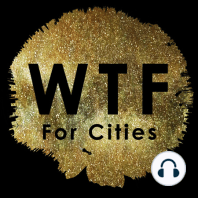1 min listen

058R_An adaptive learning process for developing and applying sustainability indicators with local communities (research summary)
058R_An adaptive learning process for developing and applying sustainability indicators with local communities (research summary)
ratings:
Length:
12 minutes
Released:
Jun 6, 2022
Format:
Podcast episode
Description
Summary of the article titled An adaptive learning process for developing and applying sustainability indicators with local communities from 2005 by Mark Reed, Evan Fraser, and Andrew J. Dougill, published in the Ecological Economics journal by Science Direct.
Since we are investigating the future of cities, I thought it would be interesting to see an investigation into sustainability measurements and indicators from top-down and bottom-up perspectives. This article proposes a process combining best practices of the different paradigms as a holistic approach for measuring progress towards sustainable development.
You can find the article through this link.
Abstract: Sustainability indicators based on local data provide a practical method to monitor progress towards sustainable development. However, since there are many conflicting frameworks proposed to develop indicators, it is unclear how best to collect these data. The purpose of this paper is to analyse the literature on developing and applying sustainability indicators at local scales to develop a methodological framework that summarises best practice. First, two ideological paradigms are outlined: one that is expert-led and top–down, and one that is community-based and bottom–up. Second, the paper assesses the methodological steps proposed in each paradigm to identify, select and measure indicators. Finally, the paper concludes by proposing a learning process that integrates best practice for stakeholder-led local sustainability assessments. By integrating approaches from different paradigms, the proposed process offers a holistic approach for measuring progress towards sustainable development. It emphasizes the importance of participatory approaches setting the context for sustainability assessment at local scales, but stresses the role of expert-led methods in indicator evaluation and dissemination. Research findings from around the world are used to show how the proposed process can be used to develop quantitative and qualitative indicators that are both scientifically rigorous and objective while remaining easy to collect and interpret for communities.
You can find the transcript through this link.
What wast the most interesting part for you? What questions did arise for you? Let me know on twitter @WTF4Cities!
I hope this was an interesting episode for you and thanks for tuning in.
Music by Lesfm from Pixabay
Since we are investigating the future of cities, I thought it would be interesting to see an investigation into sustainability measurements and indicators from top-down and bottom-up perspectives. This article proposes a process combining best practices of the different paradigms as a holistic approach for measuring progress towards sustainable development.
You can find the article through this link.
Abstract: Sustainability indicators based on local data provide a practical method to monitor progress towards sustainable development. However, since there are many conflicting frameworks proposed to develop indicators, it is unclear how best to collect these data. The purpose of this paper is to analyse the literature on developing and applying sustainability indicators at local scales to develop a methodological framework that summarises best practice. First, two ideological paradigms are outlined: one that is expert-led and top–down, and one that is community-based and bottom–up. Second, the paper assesses the methodological steps proposed in each paradigm to identify, select and measure indicators. Finally, the paper concludes by proposing a learning process that integrates best practice for stakeholder-led local sustainability assessments. By integrating approaches from different paradigms, the proposed process offers a holistic approach for measuring progress towards sustainable development. It emphasizes the importance of participatory approaches setting the context for sustainability assessment at local scales, but stresses the role of expert-led methods in indicator evaluation and dissemination. Research findings from around the world are used to show how the proposed process can be used to develop quantitative and qualitative indicators that are both scientifically rigorous and objective while remaining easy to collect and interpret for communities.
You can find the transcript through this link.
What wast the most interesting part for you? What questions did arise for you? Let me know on twitter @WTF4Cities!
I hope this was an interesting episode for you and thanks for tuning in.
Music by Lesfm from Pixabay
Released:
Jun 6, 2022
Format:
Podcast episode
Titles in the series (100)
Trailer for What is The Future for Cities? podcast by What is The Future for Cities?